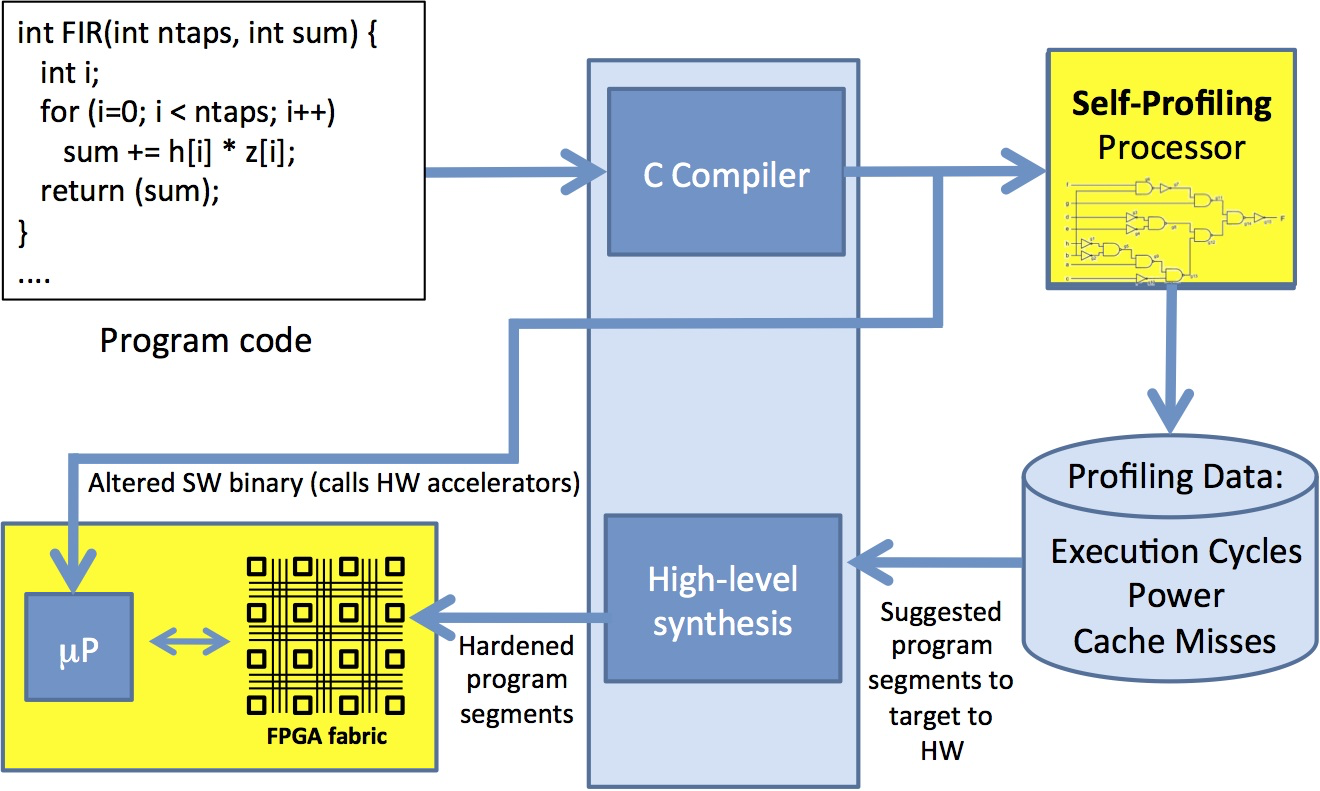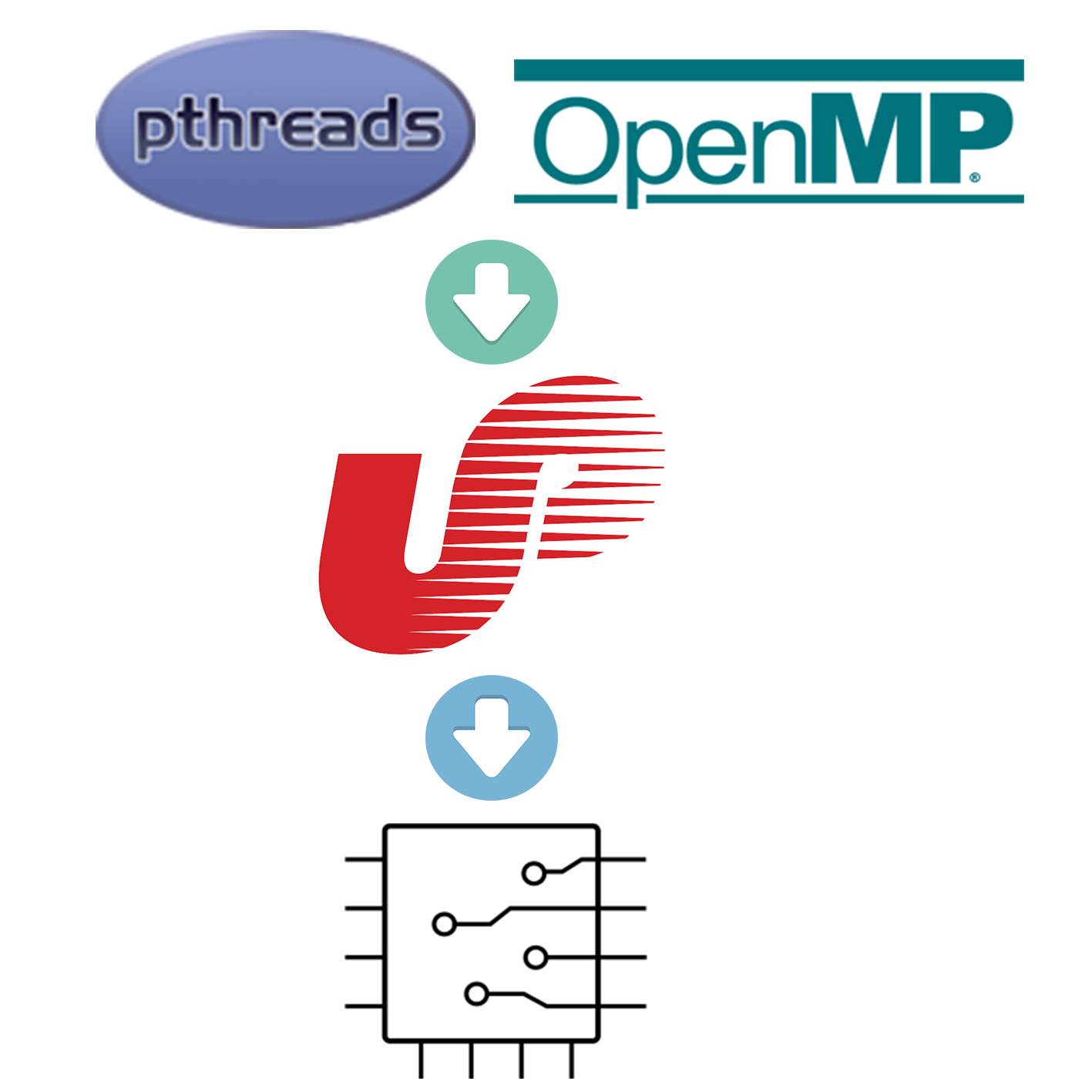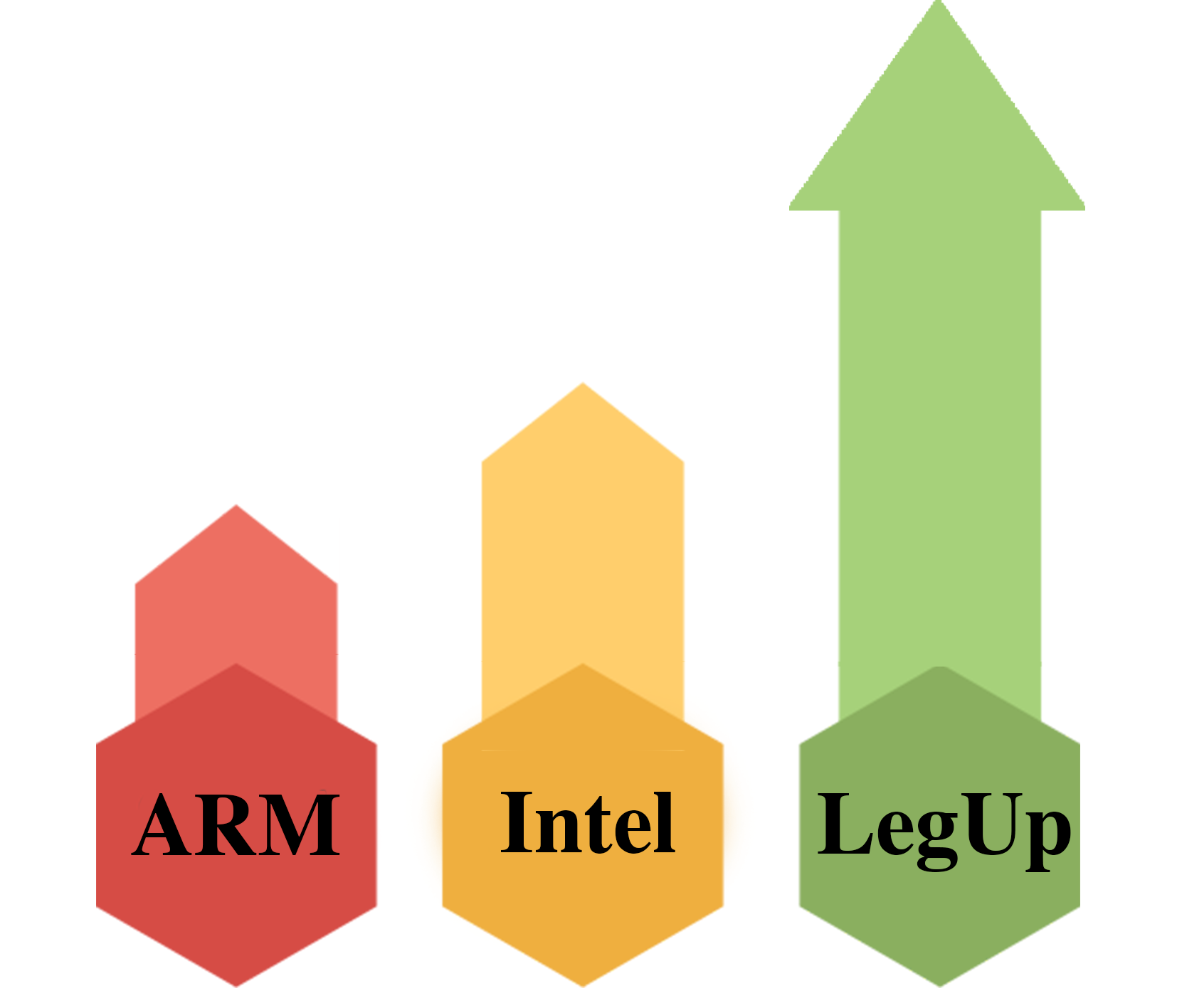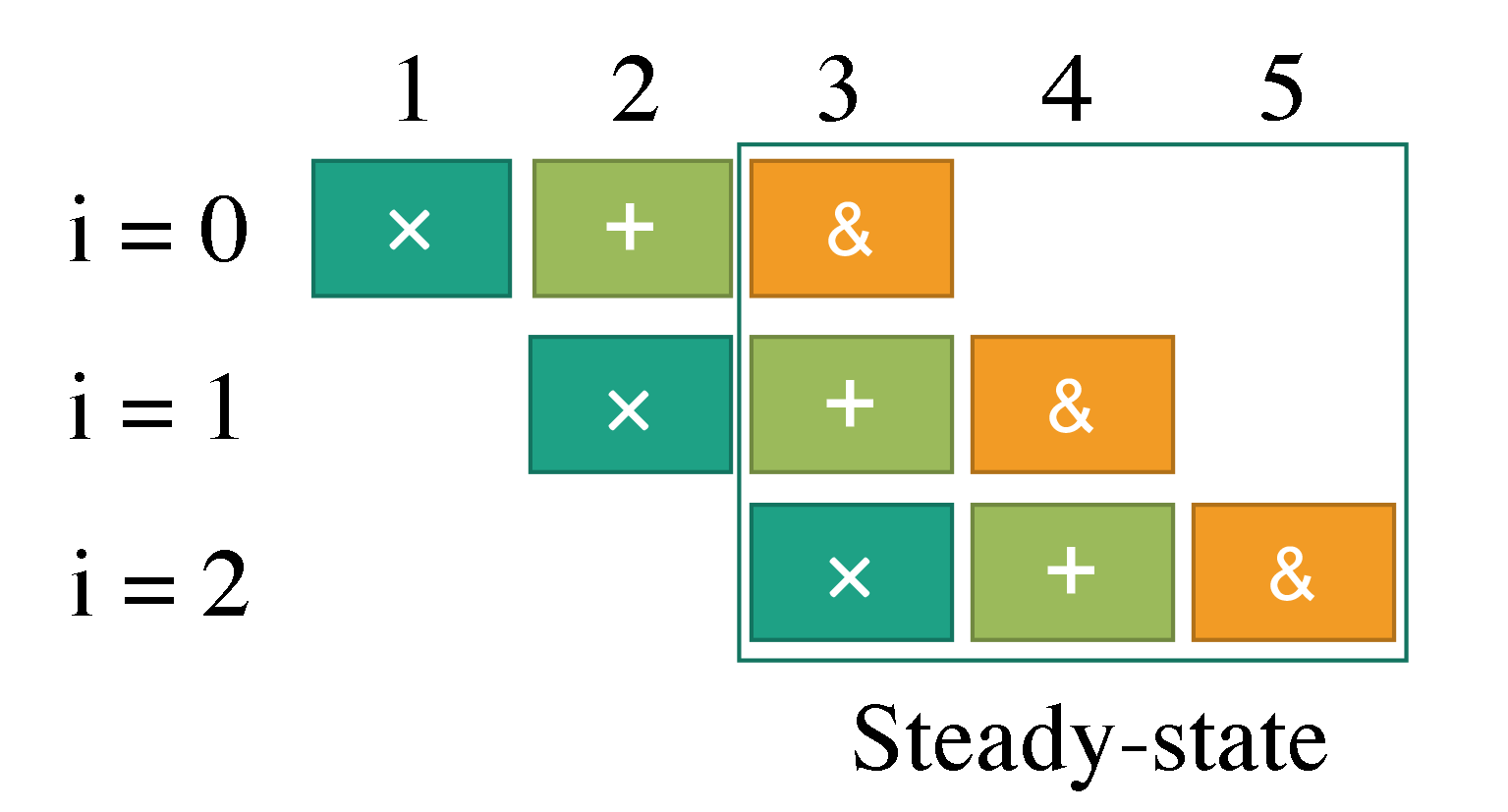Achieve higher performance and lower power with LegUp!
LegUp is a state-of-the-art high-level synthesis (HLS) compiler which automatically generates high-performance FPGA hardware from software. Hardware implemented on an FPGA can provide 10X improvement in performance and energy-efficiency compared to software executing on a processor. However, FPGA hardware design can be extremely difficult and time consuming, even for expert hardware designers. For software engineers, FPGAs have been simply inaccessible. LegUp opens the doors for software engineers to use FPGAs and reap the performance and energy-efficiency benefits FPGAs have to offer. By raising the design abstraction to software, LegUp also significantly reduces the design time, leading to shorter time-to-market. Use LegUp to obtain higher performance, better energy-efficiency, and faster time-to-market for your application!




